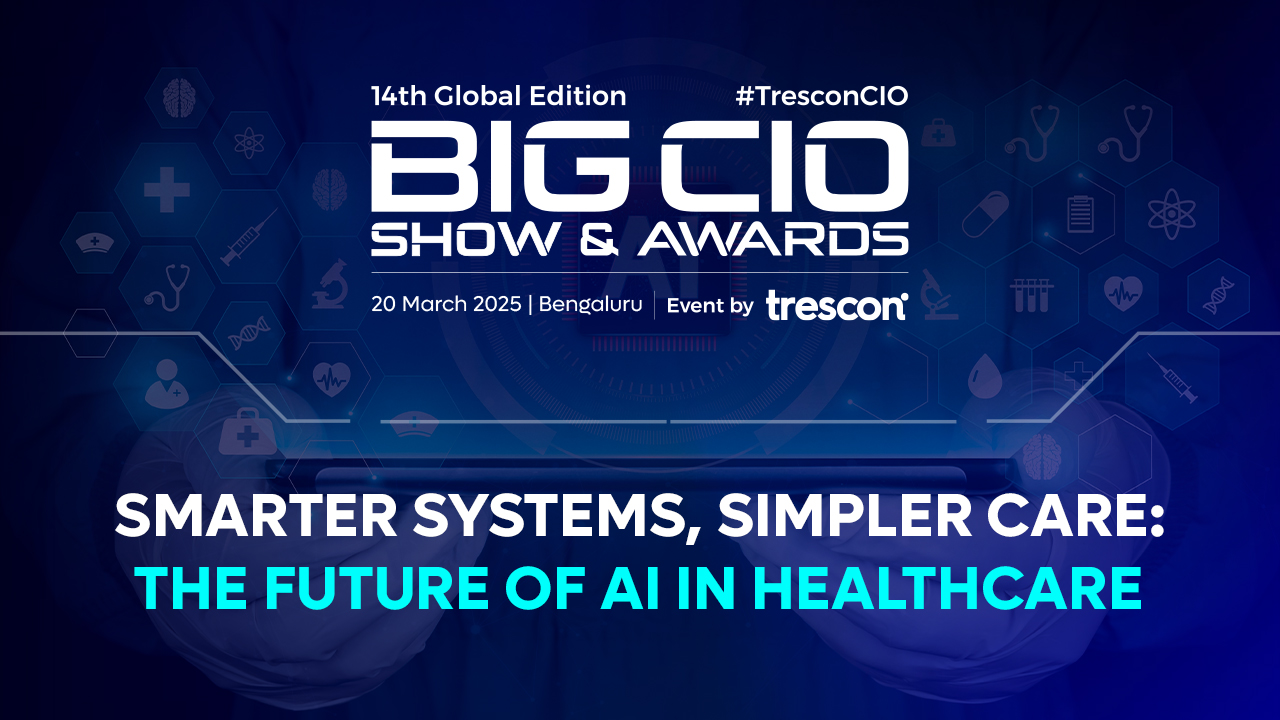
Smarter Systems, Simpler Care: The Future of AI in Healthcare
One of the crucial sectors that has seen an overnight transformation is healthcare. The advent of smart analytics, algorithms and artificial intelligence allows doctors to provide more precise and personalized patient care.
This paradigm shift is impacting not only how we diagnose and treat patients but also overhauling the patient experience. But as the industry continues to transform, the modern CIO has to answer a pressing question: How do we integrate these tools responsibly, effectively, and ethically?
With growing concerns about data governance, privacy concerns, and the nuances of AI adoption, the CIOs become the linchpin between clinical expertise and digital innovation. Their role isn’t merely to deploy technology but to build a culture where AI becomes a true ally in healthcare.
Precision Medicine: A Crucial Ally
Recent breakthroughs in medical science have enabled doctors to provide the right diagnosis and customized treatment to further ease the patient’s experience. Yet we see clinics and test centers overburdened. With mounting datasets and less manpower, AI has made critical inroads in taking the burden away from these stressed centers.
An example of this can be seen in diagnostic imaging. With the massive inflow of data from CT scans, the utilization of AI-driven tools can help scan over 500+ images while helping clinics catch the early signs of diseases like Fatty Liver and flag critical cases. This will help doctors not only speed up diagnosis but also provide precise care to critical cases without any delay.
Ambient Documentation: Goodbye administrative overload
Another avenue that has often been an issue for healthcare providers is streamlined documentation. When the electronic health record (EHR) systems were first introduced, it was intended to streamline processes but all it could manage was to pile on administrative tasks.
For countless physicians, the end of a shift no longer means rest; it means hours spent at home, logging patient details instead of recharging. To further aid in keeping the doctors fresh and allowing them to focus, many healthcare organizations are moving towards adopting ambient documentation technology.
An AI technology that listens in on the doctor-patient conversation and generates real-time notes which are ready for review. This tool will not only cut down on administrative work but also free clinics to focus on patients. However, the tech would require regular audits to help maintain its performance.
Smarter Scheduling and Tailored Care
In healthcare, logistics are as critical as diagnostics. Take scheduling in a busy hospital: ORs, always in demand, sometimes sit idle simply due to a scheduling mishap. With machine learning swooping in, some hospitals are spotting these conflicts before they happen, aligning surgeons’ schedules with OR availability. The result? Hundreds of precious OR hours were reclaimed, patient wait times slashed, and surgeries proceeded on time. It’s a simple solution, just a bit of wizardry on the backend to bring it all together.
Then there’s the matter of tailored care for complex cases. Patients with intricate conditions, such as cancer, need more than standard treatment plans. Some organizations are linking customized treatment roadmaps directly to electronic medical records.
This innovation puts every patient’s unique plan right in front of the clinician, skipping the scramble. Hundreds of personalized protocols are ready at a click. A win for patients and providers alike. By cracking open EMR systems for real customization, healthcare gets a little closer to being truly patient-centered.
What’s Next? AI for Efficiency and Patient-Centered Care
So, what lies ahead? New AI tools promise to ease physicians’ workloads, streamline chart reviews, and simplify billing. These innovations aim to lift the administrative weight, letting clinicians focus on what truly matters—patient care.
But digital transformation in healthcare is far from finished. The next step is clear: create systems that support without adding complexity, turning the EMR from a task manager into a true record keeper. With this shift, patient care becomes smoother, the clinician’s role simpler, and healthcare better prepared for the next wave of change.
